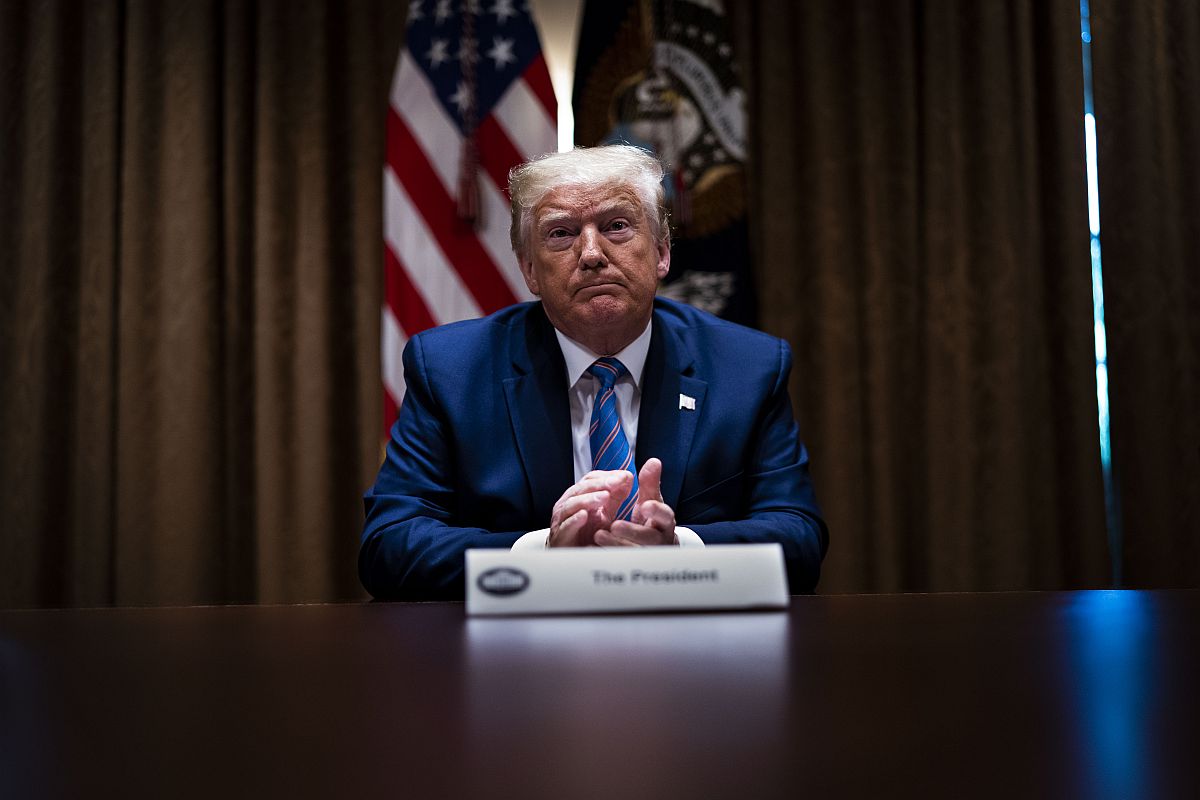Musk and Soros
Soros has been a funder of the Democratic Party in the US and has self-confessedly supported causes that are inherently liberal and pro-democracy, through his muchbandied Open Society Foundation that operates in over 120 countries.
H-1B is a non-immigrant visa that allows companies in the US to employ foreign workers in speciality occupations that require theoretical or technical expertise. The technology companies depend on it to hire tens of thousands of employees each year from countries like India and China.

US President Donald Trump (Photo: AFP)
The President of United States (US) Donald Trump said on Saturday that he will be announcing new visa restrictions in coming days as unemployment in the country soars to highest ever numbers on record in the wake of the Coronavirus pandemic.
“We’re going to be announcing something tomorrow or the next day on visas,” Trump said in a Fox News interview on Sunday.
Advertisement
The US President however declined to give any details but acknowledged that there will be some exclusions.
Advertisement
“You need them for big businesses where they have certain people that have been coming in for a long time, but very little exclusion and they’re pretty tight,” he said.
“And we may even go very tight for a period of time.”
H-1B is a non-immigrant visa that allows companies in the US to employ foreign workers in speciality occupations that require theoretical or technical expertise. The technology companies depend on it to hire tens of thousands of employees each year from countries like India and China.
Nearly 500,000 migrant workers are employed in the US in the H-1B status.
Fox News Chief White House correspondent John Roberts tweeted that the restrictions will be imposed on H-1B, H-2B, L-1 and J-1 visas.
H-1B visas are designed for certain skilled workers such as those employed in science, engineering, and information technology fields, while H-2B visas are given to seasonal workers such as hotel and construction staff.
L-1 visas are meant for executives who work for large corporations and J-1 visas are issued to research scholars, professors and other cultural and work-exchange programs.
Trump will reportedly sign an executive order to suspend the visas through the end of the year, as the administration is addressing a major economic fallout, including high unemployment among Americans, amid the coronavirus pandemic.
That would be Trump’s latest step to restrict immigration.
In April, he temporarily halted the issuance of US green cards to some foreigners.
Trump, who has maintained a hardline stance on immigration and used that to appeal to his voters, has been accused of using the pandemic to promote his political agenda.
More than 33 million Americans have lost their jobs in the first two months since the Coronavirus pandemic hit the country that has brought the US economy to a standstill.
The US Citizenship and Immigration Services (USCIS) can issue a maximum of 65,000 H-1B work visas every year to highly skilled foreign workers. It can issue an additional 20,000 H-1B visas to those highly skilled foreign workers who have obtained masters or higher degrees from an American educational institution.
(With inputs from IANS)
Advertisement